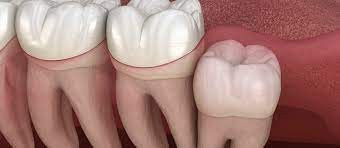views
Wisdom Tooth Extraction Treatment
When preparing for wisdom tooth removal, a common question patients ask is whether to choose local vs. general anesthesia for wisdom tooth surgery. The type of anesthesia used can significantly impact your comfort, recovery, and overall experience. While both methods are safe and effective, they serve different needs depending on the complexity of the Wisdom Tooth Extraction procedure, the patient's medical history, and anxiety levels. Understanding the pros and cons of each option can help you make a more informed decision alongside your oral surgeon.
What Is Local Anesthesia?
Local anesthesia is the most commonly used method for straightforward wisdom tooth extractions. It involves numbing only the specific area in your mouth where the surgery will occur. Key features of local anesthesia include:
-
You remain fully awake and aware during the procedure
-
The targeted area is numb, so you won’t feel pain but may feel pressure
-
Recovery from the anesthetic is quick, often within a couple of hours
-
No need for fasting before the procedure in most cases
-
Lower overall cost compared to sedation or general anesthesia
Local anesthesia is ideal for patients having one or two uncomplicated teeth removed and who are comfortable staying awake during dental surgery.

What Is General Anesthesia?
General anesthesia renders the patient completely unconscious during the procedure. It's typically used in more complex cases and requires specialized equipment and monitoring. Key characteristics include:
-
You are completely asleep and won’t feel, see, or remember anything
-
The procedure is often faster, since the patient is fully relaxed
-
Recovery takes longer, with drowsiness lingering for several hours
-
Pre-operative fasting is required, usually starting 6–8 hours before surgery
-
Used in a hospital or surgical center, due to the need for an anesthesiologist
This option is recommended for patients having all four wisdom teeth removed, impacted teeth, or high anxiety about the procedure.
Pros and Cons of Local Anesthesia:
Choosing local anesthesia has several benefits, but it may not be the best fit for every situation. Consider the following:
Pros:
-
Minimal side effects and quick recovery
-
You remain in control and aware
-
Less expensive and more accessible
-
No IV or pre-op fasting required
Cons:
-
Not suitable for highly anxious patients
-
Pressure and noise may be unsettling
-
Limited use for complex or lengthy surgeries
It’s best for those who are comfortable in dental settings and whose teeth are not deeply impacted.
Pros and Cons of General Anesthesia:
General anesthesia offers complete sedation but comes with additional considerations. Here’s what to expect:
Pros:
-
No awareness of the procedure
-
Ideal for complex or multiple extractions
-
Helpful for patients with strong dental phobia
-
Ensures patient stillness during surgery
Cons:
-
Longer post-op recovery
-
More expensive due to facility and specialist fees
-
Greater medical oversight and potential risks
-
Requires pre-op preparation and fasting
It’s a preferred choice for surgical Wisdom Tooth Extraction Treatment involving impacted or complicated wisdom teeth.
How to Choose the Right Anesthesia?
The decision between local vs. general anesthesia for wisdom tooth surgery depends on several personal and clinical factors. Your oral surgeon will evaluate the following:
-
Number of teeth being removed
-
Position and impaction level of the wisdom teeth
-
Your medical history and medications
-
Level of anxiety or fear of surgery
-
Budget and insurance coverage
In some cases, a third option—conscious sedation with nitrous oxide or IV sedation combined with local anesthesia—may be suggested to balance comfort and awareness.
Final Thoughts on Anesthesia Options:
Ultimately, whether you choose local or general anesthesia for wisdom tooth surgery comes down to your individual needs and preferences. Local anesthesia offers a quicker, more affordable option for simple extractions, while general anesthesia provides complete comfort for more invasive procedures. Always consult your dentist or oral surgeon to determine the safest and most suitable anesthesia plan. Knowing your options in advance helps you prepare confidently for a smoother, stress-free surgical experience.



Comments
0 comment